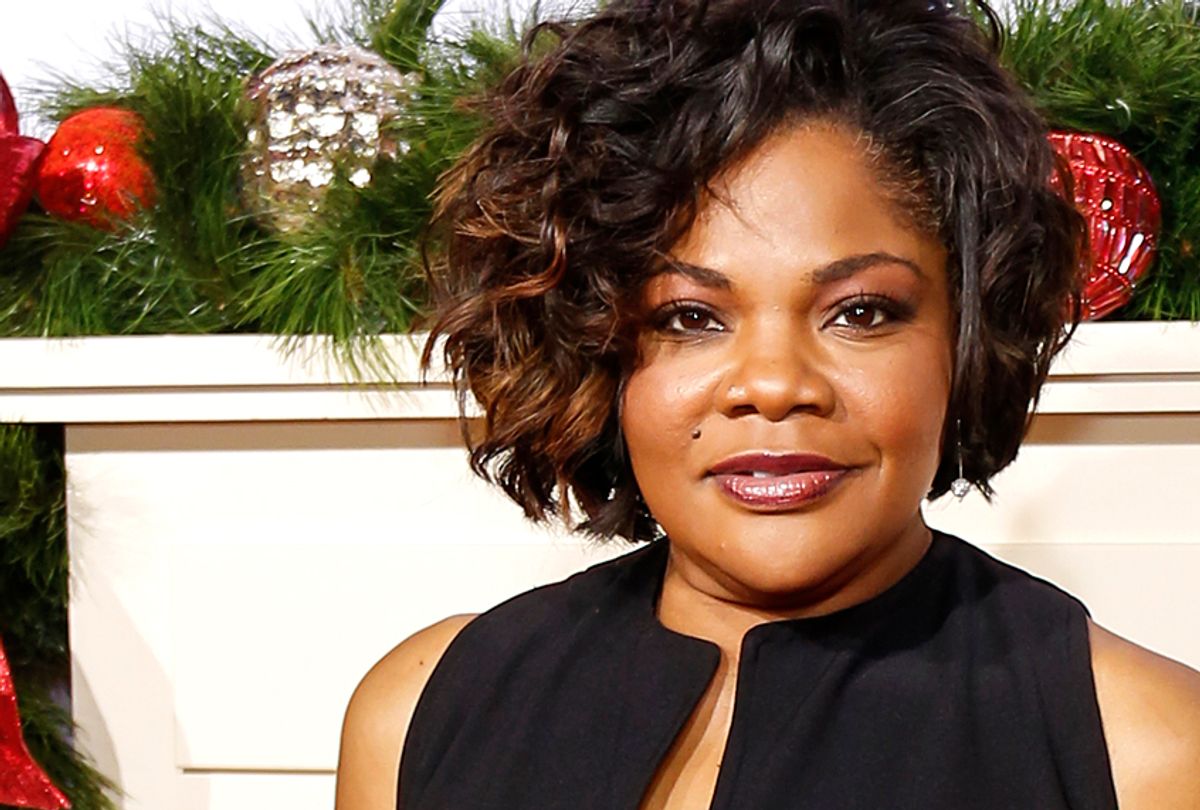New details have emerged about comedian and actor Mo'Nique's negotiations with Netflix for a comedy special. After previously calling for a boycott of the industry-leading streaming service for gender and racial bias, the performer has come forward with a screenshot of what she alleges is the contract it offered her. If these are indeed the terms offered, their revelation casts the company in the worst of lights.
Not only does the email containing the terms show that Netflix offered the Oscar-winning and veteran comic $500,000 for a one-hour special as she claimed before, but the stipulations for this deal are questionable and exhaustive.
For a year following the special's premiere, the terms would have barred Mo'Nique from taping or negotiating another comedy special with any third party.
As well, Netflix would have retained rights of first negotiation once those 12 months were upand she would only be able to tape a special with another company if Netflix passed. Essentially, this was not a contract for one show. Rather, Netflix would have owned her broadcast rights for up to two years or more.
It doesn't end there. For the two years after the premiere of her special, Netflix asked that "Mo'Nique not perform or use the material from our special in any recorded program (audio-only or audio-visual work), then we ask for a first negotiation/first refusal right after the 24 months in the event that she does want to use the material elsewhere." More or less, Netflix wouldn't have just had possession of the produced show, but the content therein, forcing her to develop entirely new material for touring, which is the lifeblood of any working comedian. Here, Netflix is essentially proposing to own the comedian and her jokes for the next two years for $500,000 — a very bad deal.
On January 19, Mo'Nique posted an Instagram video asking people to boycott Netflix alleging alleging color and gender bias. There, Mo'Nique shared few details, other than that she had been offered $500,000 for a comedy special, while other comedians like Amy Schumer were offered $11 million, and even negotiated $2 million more, and Chris Rock and Dave Chappelle were offered $20 million. It is fully unclear if those performers also had to sign their jokes and future broadcast rights away.
#BOYCOTT#NETFLIX FOR #COLORBIAS AND #GENDERBIAS. PLEASE STAND WITH ME. I LOVE US. A post shared by Mo'nique (@therealmoworldwide) on
From the beginning, many on social media responded negatively to Mo'Nique's call for a boycott. Some questioned her relevancy, especially compared to the comedy stars she mentioned (though there was little reference to Dave Chappelle's decade-plus hiatus). A few days after Mo'Nique came forward, however, comedian Wanda Sykes revealed that she too was lowballed by Netflix and offered $250,000 for a comedy special. It's unclear what terms were included in her contract.
Jada Pinkett Smith also fired off a couple of nuanced tweets saying, "You don’t have to like Mo’Nique’s approach. You don’t have to agree with her boycott but don’t allow all of that to make you blind to the fact that non-white women and impoverished white women are underpaid, underrepresented and undervalued EVERYWHERE by EVERYONE."
Still, the backlash continued for Mo'Nique. Reports began circling (albeit on gossip blogs) that she was offered $3 million; that she was asked to audition for Netflix's staff; that the money was reflective of her reputation for being hard to work with. But as comedian Liz Barlow wrote for Huff Post, "we do not need her to be perfect to say that she is correct about systematic inequality. . . Paying black women less than a man or a white woman to do the the same job is as American as apple pie."
In the era of Time's Up, where gender pay disparity has become a more pressing question in the TV and film industry, acknowledging and addressing the double oppression suffered by women of color — and black women entertainers specifically — face seems more necessary than ever. Some are taking steps to do exactly that.
Recently, white actor Jessica Chastain tied her compensation to black actor Octavia Spencer's while negotiating pay for an upcoming film. There, listened to Spencer's, and women of color's experiences at large of pay disparity, and used her privilege to ensure both stars were compensated fairly. But none of that would have been necessary if more people were geared to listen to and believe black women when they speak on their own behalves.
Now that Mo'Nique has proof of Netflix's proposed contract, maybe a few more will be ready to do that.

Shares